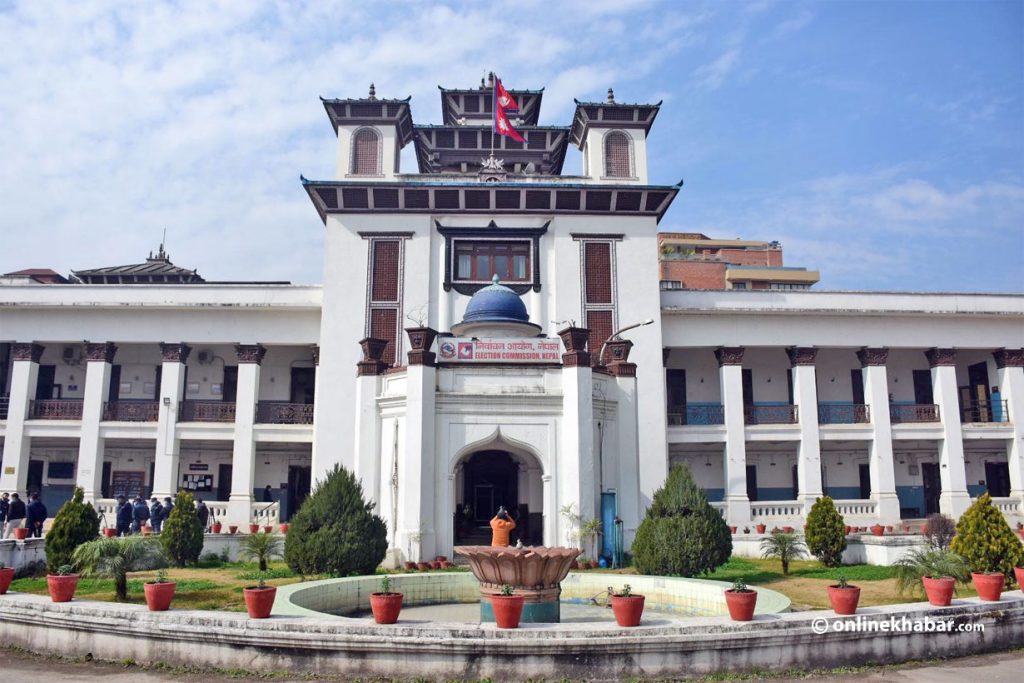

The silence period for the May 13 local level election starts from midnight today. The Election Commission has determined 48 hours of the silence period before the voting for facilitating the conduction of the election in a free, fair and fear-free environment.
Any type of activity related to the election is prohibited during that period. The EC has also prohibited the political parties from organizing electoral assembly, meeting and door-to-door campaigning.
It is stated in the Election Code of Conduct issued by the EC that no news or material related to any party or candidate can be broadcast or disseminated in the media including radio, television, newspaper and online media during the silence period. Although the silence period would be in force in the media, it appears that regulating the social sites is going to be challenging for the EC.
It is found that even though the radio, television, newspapers and online media are regulated in other countries also during the election silence period, they are not able to regulate the social media. Stopping the campaigning through social sites as Facebook, Twitter, and TikTok during the silence period is challenging, it is said.
EC has urged the candidates and their supporters not to carry out activities like campaigning through social media during the silence period.
EC spokesperson Shaligram Sharma Poudel said that although a mechanism has been set up for monitoring the social media, it is going to be quite challenging to stop the election campaigning through these media during the silence period.
The EC is working to monitor social sites during the silence period by constituting a special committee that comprises two IT experts from the Cyber Bureau, Nepal Police and one from the Nepali Army. Though the EC has a support of the special committee to observe the contents in the social networking sites during the silence time, it is still challenging to ensure the implementation of code of conduct in cyber space, according to Poudel.
EC has urged users of social sites to delete if election-related material had been posted before and not to post new one. “But the reality is that its use is beyond the border, we will try to do our role to the best of our ability, but results will show how much we will be successful,” he said.
The EC has urged one and all to fully abide by the silence period norms and values. “Violation of silence period rule in the cyber space will raise a question on the moral ground,” he said.
As Poudel added political cadres and supporters of election candidates are more likely than candidates to repost election related contents on social media during the silence period.
Bearing this possibility in mind, the EC has instructed election candidates and their supporters to delete contents posted on social media against the election code of conduct before the commencement of the silence period and not to post new one. The Nepal Telecommunication Authority has been instructed to regulate it.
The EC has also directed the Nepal Telecom not to provide SMS service during the silence period.
No message, information and publicity in favor and against political parties and candidates should be posted, shared, commented and replied as well as news in favor and against political parties and candidates should not been disseminated or published in social sites, online, print media and other means in silence period.
The Election Code of Conduct mentioned that advertisement in favor and against the political parties and candidates, talk show, argument, analysis, question and answer programmes should not be conducted as well as articles disseminating negative message, pictures regarding election should not be published during this hour.
Information Technology expert Ullekh Niraula said that the EC could not control the social media in silence period. He opined, “We do not have any mechanism to control social media. Social media users can share news link posted few days ago through Facebook, Twitter and TikTok. It is impossible to control it.”
It could be controlled in some extent by taking action indicating their names who disseminate election related materials during silence period, he argued.